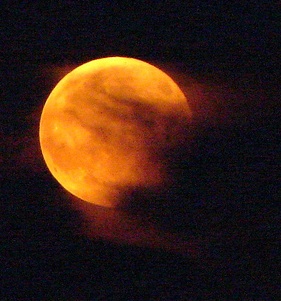 There are places we go and places we need to go. They are similar. They both fascinate us and thrill us and also terrify us. Spiny urchins with unforgettable foibles chuckle at our fear, or knock in the night. (play dramatic, clutching string chord, perhaps a nice healthy 13th cluster, with vigorous tremolo, diminuendoing to background) We fear the unknown, lurking, well… unknown, beneath the surface, beneath our physical lives and in our psychic lives. “Could you pass the pickles? I love those Kosher dills!” We are hard wired to ignore a lot.
There are places we go and places we need to go. They are similar. They both fascinate us and thrill us and also terrify us. Spiny urchins with unforgettable foibles chuckle at our fear, or knock in the night. (play dramatic, clutching string chord, perhaps a nice healthy 13th cluster, with vigorous tremolo, diminuendoing to background) We fear the unknown, lurking, well… unknown, beneath the surface, beneath our physical lives and in our psychic lives. “Could you pass the pickles? I love those Kosher dills!” We are hard wired to ignore a lot.
Learning is doing and letting. When we face what we fear, we learn. To learn we must let. To let we must trust. To trust we must believe. And it goes on, until we get to experience. When we experience, we find change, it begins to carry more weight. When we see things as they are we admit they are absolutely new. Sure, there are patterns. Like spirals and swirls and hatcheted hounds tooth patterns looming over the surface. What I mean is the raw, visceral newness, like opening a new box of Cheerios. It’s not pretty. Accepting and opening to everything is daunting, terrifying. But it can happen. And it needs to be acknowledged, heightened, fleshed, lived, feared.
Johnny, oh Johnny boy, take me to your haystack and shine your sun on me! Yes, Johnny redeemed me resuscitated me, brought me back to reality, to the reality I sense is right for me, for anyone, to cherish the sweetness of life as it happens, from as early on as you possibly can, to give that whenever you feel it. Johnny hungry skin, perfectly hungry, salient. Connecting with his perfect hunger, giving it back, sharing it. Just for the moment, carefully, formally. Yearning, but with open eyes, embracing, shocked, vermilion snare. There is only one lesson. There is only one lesson. Do I need to repeat myself?
I know when I’m outnumbered, and when I makes sense to give in, I know. I don’t try to kid anybody. I take it as it comes. I flop around a lot. Others may not see it, but it’s me. Quiver, huddle, crouch, scream, rejoice, vibrate, weep, smile, give myself completely up to the glory of being alive, no turning back, no redemption, just gratitude, giving in, giving up, giving over, and finding the glory of just being, just breathing.
I get out of the car and press the garage door button. The noisy motor grinds for 10 long seconds. I stand there, pausing, knowing I’ve paused safely here before. High above the wind chimes barter their wares, seductive questions, partial answers, an essence of music, sampled sirens messages. She swims between two notes, daringly, favoringly. I look up at the great beast hovering over my house, reaching unrelentingly, immeasurably, knowingly, anciently toward the sky. One of it’s great, gentle hands, magnificently delicate hands, at the tip of its long, almost grotesquely feminine fingers, cradles the moon. The wind chimes pause.
Regal, diminutive, she notices me, sideways, alluring, and smiles, looking someplace beyond what I see, across the neighborhood, across the house with the perfect lights. She blows clouds around her noctilucent face, swirling them infinitely slow, a slow liquid, like glass. She listens as I watch. She calls deeply, she shows me myself, my weakness, my perfection, my end. She somehow touches me inside. She calls up my innocence, my child, my hurt. She tells me it’s OK. She lets my tears out. She lets them out from far, far inside me. I stand there, looking up at the moon through the arms of the great, gentle beast. I cry, wailing inside. Not wanting to wake the neighbors with the pretty lights, not wanting to disturb them, wailing silently, for all I cannot do, all I fail to do, all I wish to do, all I am afraid to do. I have so much to learn.
After spacing out at the moon, I come inside the house, greeted by my little friends, whom I ignore way too much, like many of my friends. Why do I do that? Why do I let pass so many perfect, sweet, gentle moments in favor of some kind of thrill, a roller-coaster ride? I get hooked on far out orbits, swinging low, way low, on a glittering chariot, way, way too much.
My little, patient friends, warm, so free, so reliant, so poetic, they know me and cannot speak, they ground me, tell me things, remind me to eat, to sleep, to breathe, to love, to hug. They are so patient. They embody some subtle, effulgent fragments of a great spirit. They embody something, at least to my fertile, lumbering sense of it. How come we do the things we do? How can we be so sensitive and so seductive and so dull, crashing and flopping across exquisite landscapes, barely noticing, just passing, blinking, into some strange night.
I cross the bridge. I walk away from the river into the fields. I walk with the moon, hold hands with a tree, weep with the night, end.




